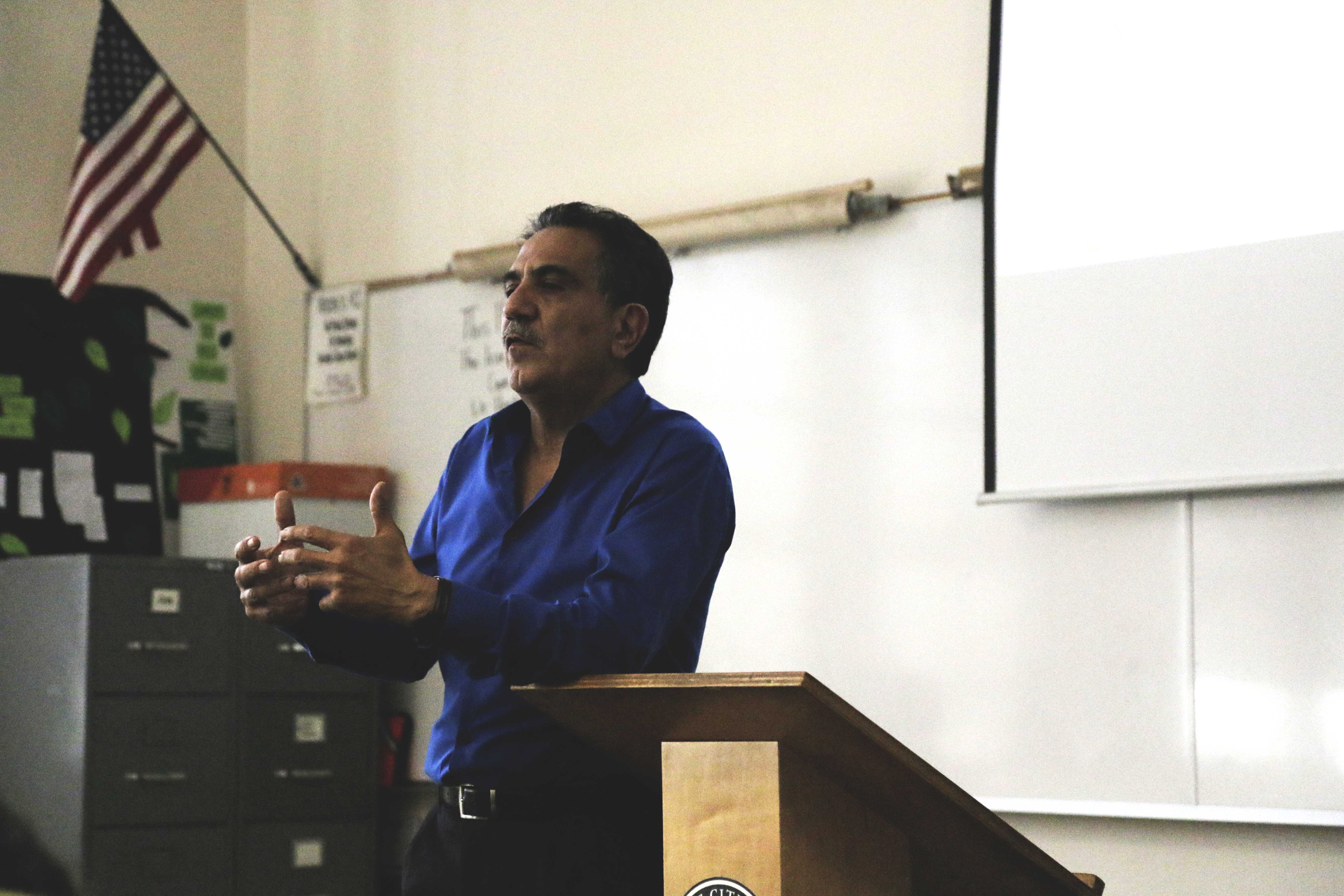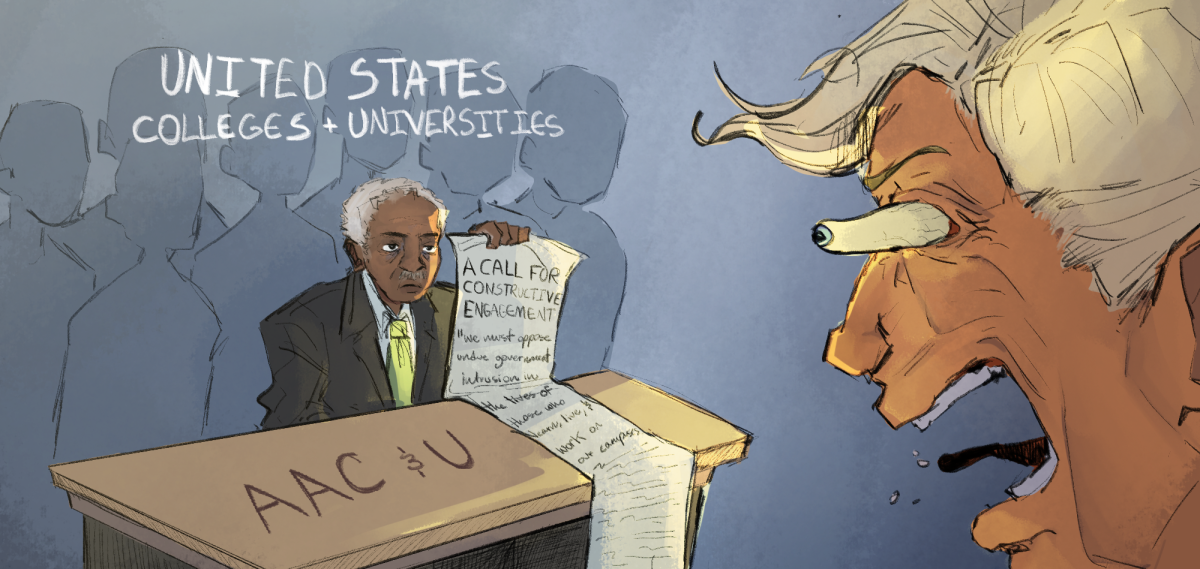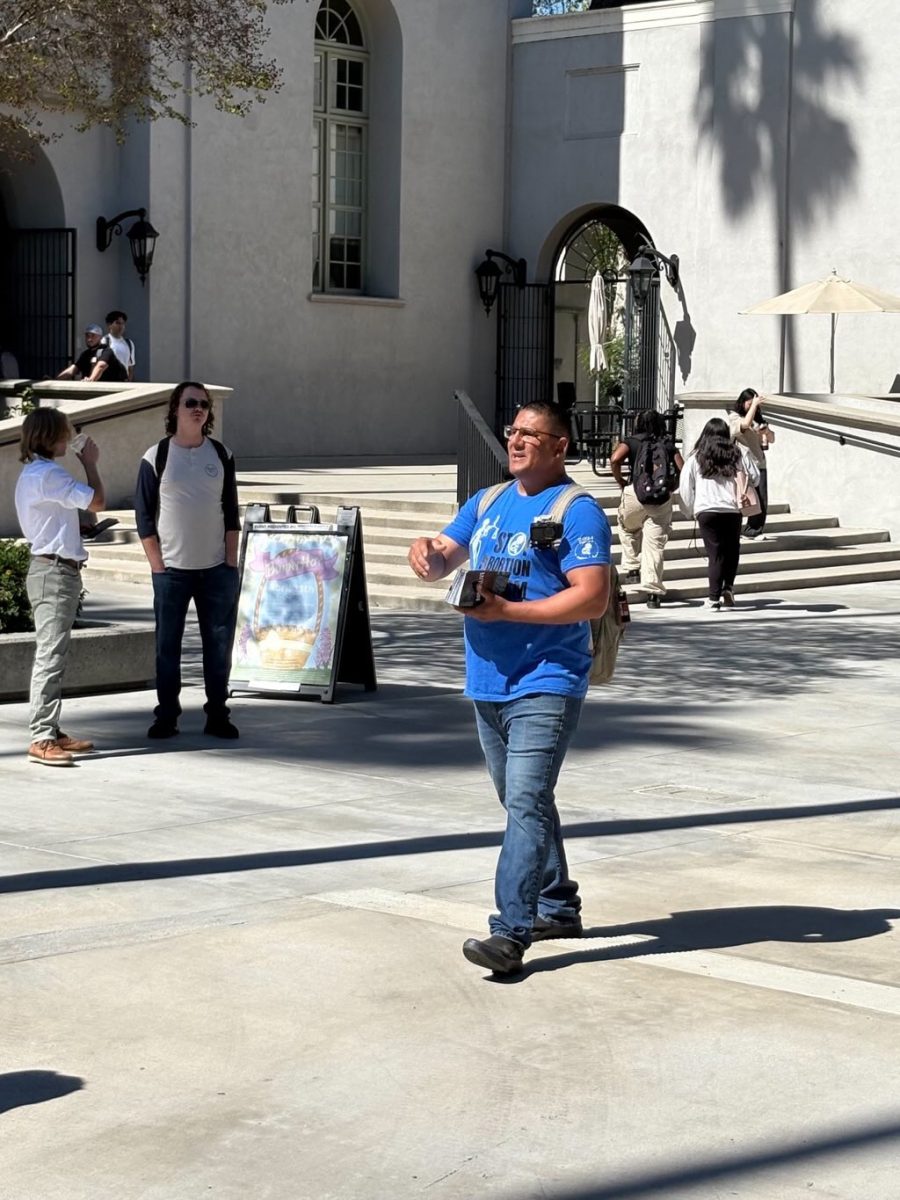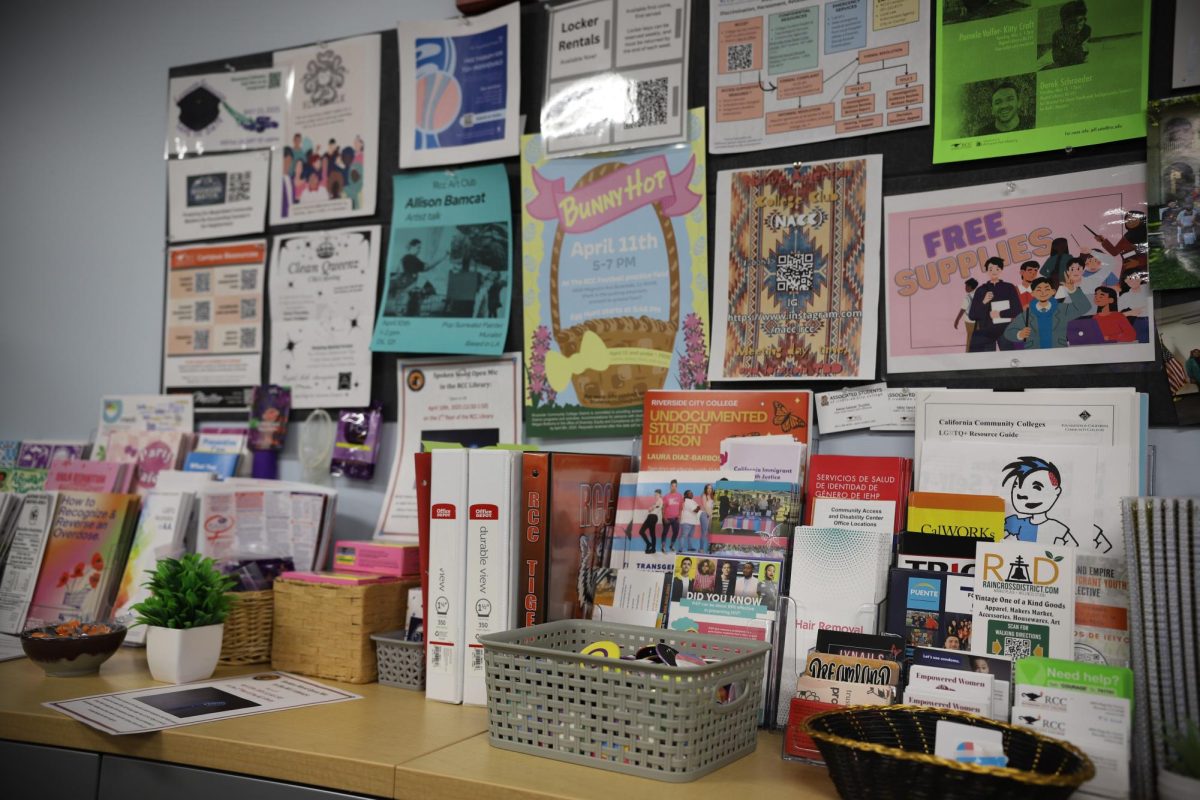Dariush Haghighat informs students about the myths and misconceptions in Iran
Written by: Crystal Olmedo

The struggle for influence in the Middle East and steps toward peace reached a landmark with the signing of the historical Iran nuclear deal in Vienna, Austria on July 14.
Dariush Haghighat gave a lecture on some of the myths and misconceptions of the deal Sept. 24 at Riverside City College.
Few seats were left open at the lecture that took place in the Quad Room 215 from 12:50-2:20 p.m.
“It is enlightening to hear about the realities behind the nuclear deal from a person who was born and raised in Iran,” RCC student Christopher Harvey said. “Most major media outlets are owned by Republicans with lobbying power in the government, so it is no surprise that the general population is rather misinformed on U.S. and Iran’s current relations.”
Haghighat said it is important that people here in the U.S. be informed about the deal and not just assume that it’s a quick or permanent fix to the problems between the U.S. and Iran and other countries in the Middle East.
The preface of the deal states that it will prohibit Iran’s cultivation of nuclear weapons and only allow Iran’s “peaceful uses of nuclear energy.” It will also lift sanctions that have been placed on the country.
Iran’s Supreme Leader Ayatollah Ali Khamenei signed the deal that is a result of a Joint Comprehensive Plan of Action including the five permanent members of the United Nations Security Council (China, France, the Russian Federation, the United Kingdom, the United States) as well as Germany, and the Islamic Republic of Iran and the High Representative of the European Union for Foreign Affairs and Security Policy. It is receiving mixed reviews from people internationally. There are those who have expressed a sigh of relief and those who believe it is only delaying an inevitable push back from Iran.
Israeli Prime Minister Benjamin Netanyahu addressed the U.N. on Oct. 1 to express his opinion on the agreement. “Ladies and gentlemen check your enthusiasm at the door. This deal does not make peace more likely. By fueling Iran’s agressions with billions of dollars in sanctions relief it makes war more likely,” Netanyahu said.
Haghighat spoke about the turmoil in the Middle East and the continuing competition to have the upper hand on what governs the actions of countries in the region.
“ISIS is not just going away, but is becoming more powerful on a daily basis … the U.S. and Iran have found a common enemy,” Haghighat said. “If we backtrack we find that ISIS is a group that was primarily funded by Saudi Arabia and the United States, originally. This is a group that Saudi Arabia financed … and supported to challenge Iranian hegemony in the Middle East.”
He said in his recent trip to Iran he saw that the state of living is dire. Girls as young as 13 years old are resorting to prostitution just to get by.
“I wish there was a way to zap the American people there so they could understand how serious it is,” Haghighat said.
Prior to the deal the U.S. had placed restrictions on U.S. financial institutions lending money to Iran and goods being exported to the country.
“The suffocating … and crippling economic sanctions that the United States, particularly the Obama Administration opposed against Iran has taken a major toll on the Iranian economy, particularly on the disappearing middle class in Iran.” Haghighat said
He spoke about how there is a difference in the way the hierarchy has benefited because they have a monopoly on the goods and can charge outrageous prices for them.
“Walking the streets of Iran, you will see people living in absolute poverty, people are struggling with the most basic needs and at the same time you’ll see a Bugatti pass by,” Haghighat said.
Haghighat says that talking about nuclear weapons and coming to agreements is crucial, but that there is more at stake.
“It is absolutely necessary to talk about real issues, which is the violations of human rights and turn the table against the regime in Iran …I’m hoping that the nuclear deal will ultimately help us to accomplish that,” Haghighat said.
He also addressed the issue of trusting in countries.
“The number one country we cannot trust is the United States, and Israel and the list can go on and on, … “ Haghighat said. “Personally I am absolutely against any country having nuclear weapons, whether it is the United States, Russia, China, Israel … As an Iranian native and as a scholar the last things Iran needs is nuclear weapons. Not because of the reasons given by Saudi Arabia or the U.S … but Iran has limited resources and those resources should be spent on improving their economic condition.”
Haghighat said that the United States needs to address behavior that can be considered a conflict of interest in the pursuit of peace.
“The number one fundamental problem with U.S. Policy in the Middle East is the unilateral and unconditional support of the state of Israel,” Haghighat said. “That issue needs to be addressed, anything short of that, the United States will never have credibility.”
Haghighat said that it is imperative not to isolate Iran but to encourage “true constructive engagement.”
“The United States needs to absolutely put an end to hypocrisy and double standards. The United States cannot talk about human rights violations under Bashar al-Assad
(President of Syria), but then turn around and completely ignore human rights violations in Saudi Arabia, one of its biggest allies,” Haghighat said.
Haghighat said that the U.S. must engage them as equal rather than as a father figure.
“It’s not just about Iran, but it’s about peace, the alternative is war, and what does (war) mean? It means that we would have to rob from RCC students and people that need healthcare and put that into defense, we would have to rob from people who are hungry, take from jobs and education,” Haghighat said. “If you want education, you want a better job … then you need to pursue peace for others pursue peace for yourself.”






